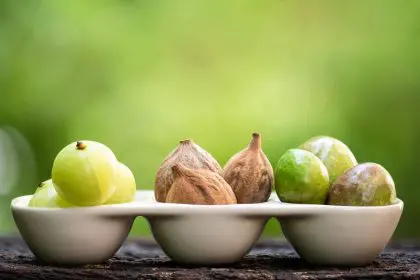Pumpkin spice is more than just a seasonal favorite; it offers powerful health benefits. This aromatic blend of cinnamon, cloves, ginger, nutmeg, and allspice contains bioactive compounds that contribute to overall well-being. Used in traditional medicine for centuries, these spices support digestion, heart health, and inflammation reduction.
Modern research highlights their potential role in protecting against chronic conditions and boosting the immune system. While many associate pumpkin spice with sugary holiday treats, its true value extends far beyond its flavor-enhancing properties.
The powerful antioxidants in pumpkin spice
Antioxidants in pumpkin spice help combat oxidative stress, a key factor in aging and disease development. Oxidative stress occurs when free radicals accumulate in the body, leading to cell damage. Antioxidant-rich foods, like those found in pumpkin spice, can help neutralize these harmful molecules.
Cinnamon and cloves, two key ingredients in the blend, are particularly potent sources of antioxidants. These compounds may support cellular health, potentially reducing the risk of conditions such as cognitive decline and heart disease. Regular consumption of antioxidant-rich spices can be a simple way to boost overall wellness.
Anti-inflammatory effects and immune support
Many ingredients in pumpkin spice possess anti-inflammatory properties that can help regulate the body’s immune response. Chronic inflammation is linked to arthritis, diabetes, and cardiovascular diseases. The spices in this blend contain bioactive compounds that may help modulate inflammation and promote immune function.
Ginger and cinnamon, in particular, have been studied for their anti-inflammatory effects. Cloves also contribute to immune support by offering antimicrobial properties that help defend the body against infections. Including pumpkin spice in daily meals may provide subtle yet effective support for overall health.
How pumpkin spice may support heart health
Pumpkin spice contains compounds that may help support cardiovascular function and circulation. Research suggests that cinnamon and cloves can contribute to maintaining healthy blood pressure levels and reducing arterial inflammation. This, in turn, may lower the risk of heart disease.
Cinnamon has also been linked to improved cholesterol levels, helping regulate LDL (bad) cholesterol while supporting HDL (good) cholesterol. By including pumpkin spice in a balanced diet, individuals may experience heart-protective benefits without the need for drastic dietary changes.
The connection between pumpkin spice and blood sugar regulation
Cinnamon, one of the primary ingredients in pumpkin spice, has been extensively studied for its potential role in blood sugar control. Research suggests that cinnamon may enhance insulin sensitivity, making it easier for the body to regulate blood sugar levels.
This property is particularly beneficial for individuals managing diabetes or prediabetes. Ginger, another component of pumpkin spice, has also shown promise in helping stabilize blood sugar levels. By incorporating these spices into a balanced diet, individuals may experience subtle improvements in glucose metabolism over time.
Incorporating pumpkin spice into a healthy diet
Pumpkin spice is a versatile blend that can be added to a variety of foods and beverages to enhance both flavor and nutrition. Many people associate it with desserts, but it can be used in a range of healthy dishes to maximize its benefits.
Simple ways to include pumpkin spice in meals include:
- Sprinkling it over oatmeal, yogurt, or smoothies for added warmth and flavor.
- Mixing it into coffee, tea, or warm milk for a comforting and nutritious beverage.
- Adding it to roasted vegetables or nuts to create a subtly spiced dish.
- Using it in homemade granola or energy bars for a flavorful twist.
- Incorporating it into soups and stews to enhance depth of flavor.
While pumpkin spice can be a valuable addition to a healthy diet, moderation is key, especially in prepackaged foods that may contain excess sugar or artificial additives.
The future of pumpkin spice as a health booster
As research continues to uncover the benefits of various spices, pumpkin spice may become recognized as more than just a seasonal indulgence. Its antioxidant, anti-inflammatory, and blood sugar-regulating properties make it a valuable addition to daily nutrition.
While it has long been associated with autumn flavors, its health benefits make it worth enjoying year-round. By incorporating this spice blend into regular meals, individuals can take advantage of its natural wellness properties and support their overall health with minimal effort.
















